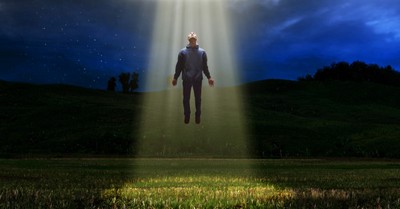Are We Getting the End Times Wrong?
BreakPoint Daily Commentary


Audio By Carbonatix
By John Stonestreet and Timothy D Padgett, Crosswalk.com
Well, the world did not end this week as a South African pastor predicted. Joshua Mhlakela said that the Rapture would occur on September 23. To prepare, some people sold their homes and quit their jobs.
This is not the first end times prediction that failed to materialize. In 2011, a radio preacher named Harold Camping identified May 21 of that year as when the Rapture would occur. More famous was the 88 Reasons the Rapture Will Be in 1988 book. There was also a Rapture panic surrounding Y2K, and in 1844, a Baptist preacher named William Miller misled so many people, the event became known as “The Great Disappointment.”
American protestants have been particularly interested in end times prophecies. The Left Behind book series from the 1990s and early 2000s sold millions. Though its fictionalized account of the end times was described as a contemporary phenomenon, it did not predict a day or year. And, of course, there was the haunting Larry Norman song of the 1970s, “I wish we’d all been ready.”
Of the various views of the end times, the most well-known is some version of premillennialism. The most popular view of premillennialism is that at a future point, Christ will meet His saints up in the air through the Rapture, before the Antichrist rules the world in a time known as the Great Tribulation. After that, Jesus will return again to rule for 1,000 years before the Final Judgment.
Another view is Preterism, which understands much of the prophesied happenings of Scripture to have already happened in the First Century. According to Amillenialism, the Millennial reign of Christ and the Tribulation aren’t specific periods of time, but rather representations of the rule of Christ through His Church and the oppressions of evil in all times. Postmillennialism holds that Christ will return once the world has been fully evangelized. Within each of these views, there are a number of variations.
Eschatology is fascinating, and while Jesus stated plainly that no one knows the “day and hour” of His return, He was crystal clear that He will return. And, in Revelation, Jesus is recorded as announcing, “Behold, I am making all things new” (21:5). In other words, the Bible’s focus when it comes to eschatology is not so much the “when” or the “how,” as it is that He is returning and the “so what?”
That He is returning should be a source of hope, joy, and comfort. Paul described “the appearing of the glory of our great God and Savior Jesus Christ” as the “blessed hope.” In 1 Thessalonians 4, a passage that many think is describing the Rapture, Paul instructed, “comfort one another with these words.” In other words, if the end of days and the return of Christ is a source of fear, we’re doing it wrong.
Even the seemingly unhinged imagery of Daniel and Joel are not intended to scare us (or entertain us). They are reminders that persecutions and tyrannies will not last forever. God governs history, the kingdoms and empires of this world are His playthings, and His justice will come.
We are also doing it wrong if the end times talk drives us to inaction, passivity, and disengagement from the world around us. After the various warnings of what the future held in Matthew 24, Christ challenged His followers to be prepared and to be good stewards of what we’ve been given in Matthew 25. The warnings given throughout the Gospels and in places like 1 Thessalonians 5 aren’t clues to a cosmic puzzle. They’re admonitions to faithfulness, to continue the tasks He’s given us. Because Christ will return, we should double down on loving God, our families, our neighbors, and our enemies.
A passage that best summarizes what we can be sure of about the present and the future is John 16:33. Jesus said, “I have told you these things, so that in me you may have peace. In this world you will have trouble. But take heart! I have overcome the world.”
If our eschatology leaves us in fear and leads us to withdraw from our calling to be salt and light, we are doing eschatology wrong. The prophecies of Scripture do not warn believers to hide in their basement or flee into the wilderness. They are words of comfort that Christ is returning, that He is the Lord of heaven and earth, and that He is making all things new. Because of Who He is, we can live as we ought, in light of a Story bigger than this moment.
Image credit: ©GettyImages/FOTOKITA
John Stonestreet is President of the Colson Center for Christian Worldview, and radio host of BreakPoint, a daily national radio program providing thought-provoking commentaries on current events and life issues from a biblical worldview. John holds degrees from Trinity Evangelical Divinity School (IL) and Bryan College (TN), and is the co-author of Making Sense of Your World: A Biblical Worldview.
The views expressed in this commentary do not necessarily reflect those of CrosswalkHeadlines.
BreakPoint is a program of the Colson Center for Christian Worldview. BreakPoint commentaries offer incisive content people can't find anywhere else; content that cuts through the fog of relativism and the news cycle with truth and compassion. Founded by Chuck Colson (1931 – 2012) in 1991 as a daily radio broadcast, BreakPoint provides a Christian perspective on today's news and trends. Today, you can get it in written and a variety of audio formats: on the web, the radio, or your favorite podcast app on the go.



